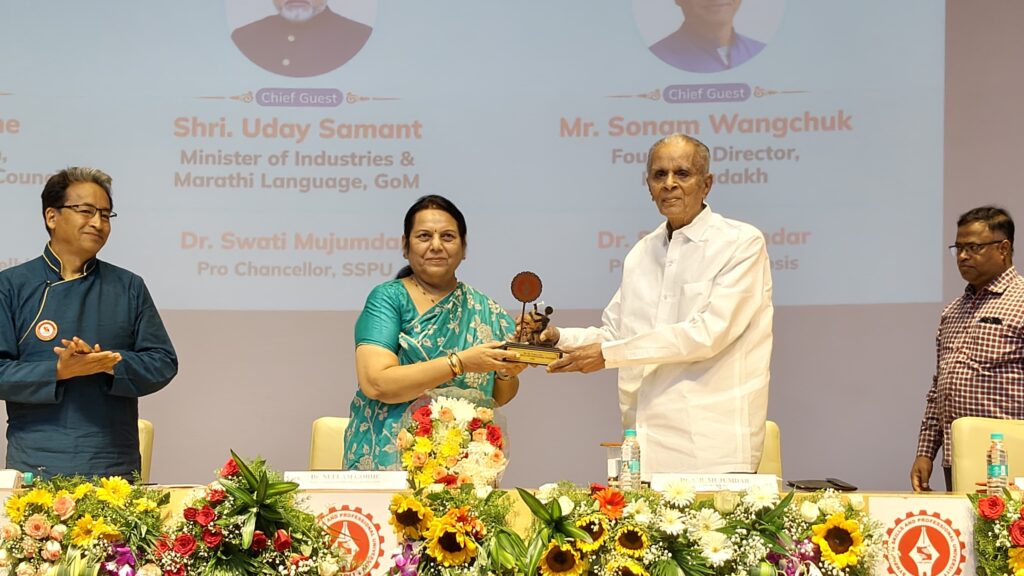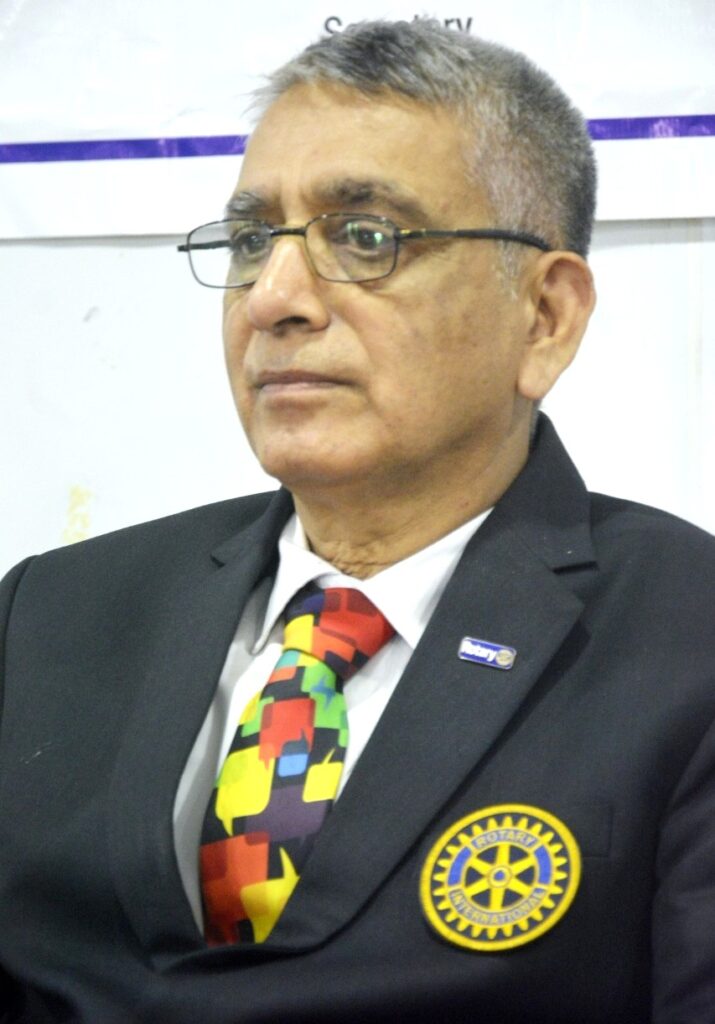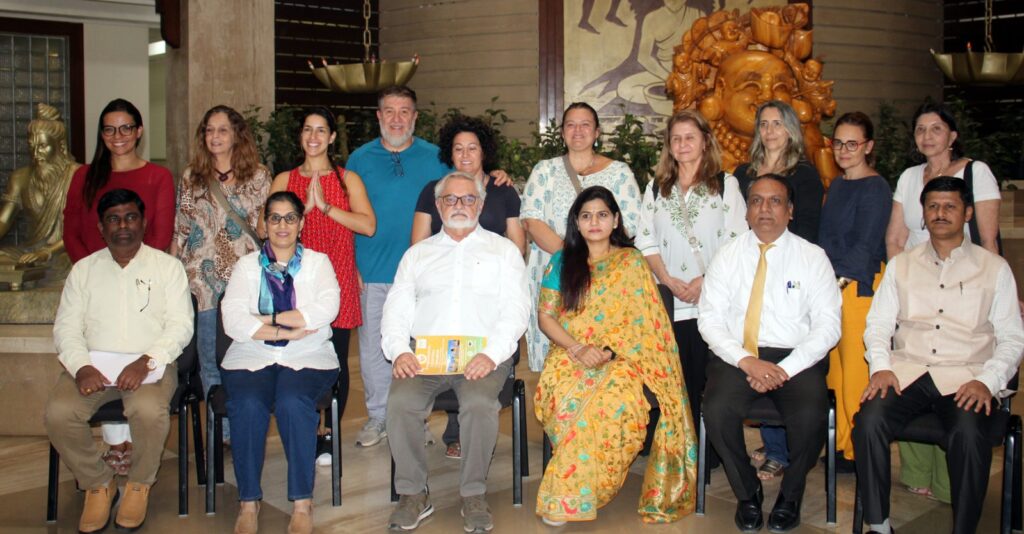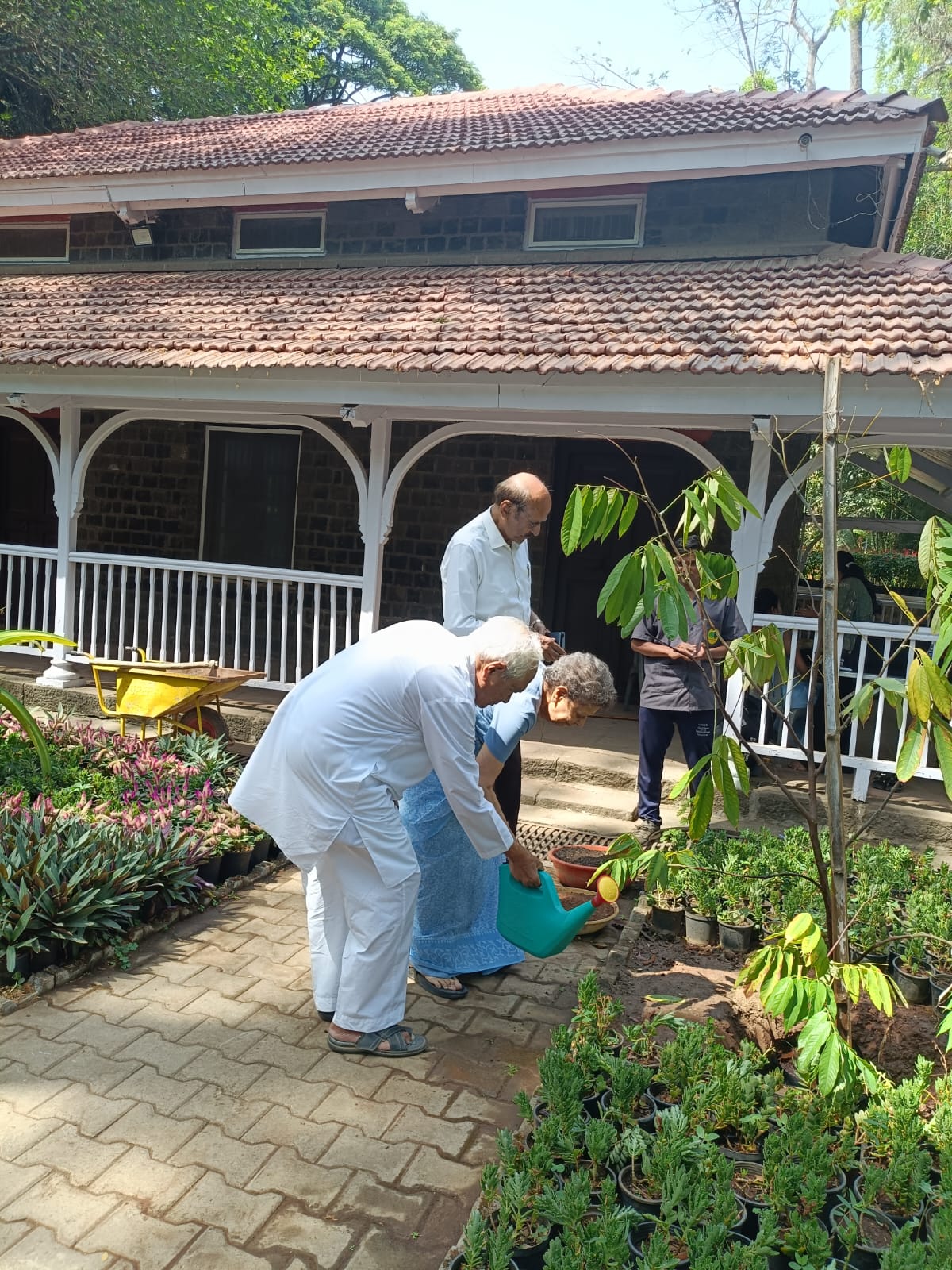Now Reading: Pune Hosts International Conference on Skill Development and TVET: Dr. Neelam Gorhe Highlights Importance of Skill-Based Policies
-
01
Pune Hosts International Conference on Skill Development and TVET: Dr. Neelam Gorhe Highlights Importance of Skill-Based Policies
Pune Hosts International Conference on Skill Development and TVET: Dr. Neelam Gorhe Highlights Importance of Skill-Based Policies

Pune, April 25 –”Government-led skill development initiatives deliver tangible benefits to society. Ministers must proactively propose new measures to drive holistic progress,” emphasized Dr. Neelam Gorhe, Deputy Chairperson of the Maharashtra Legislative Council.
She was speaking as the Chief Guest at the inauguration of the International Conference on Skill Development and Technical and Vocational Education and Training (TVET), jointly organized by Symbiosis Skills and Professional University (SSPU), UNESCO, and the National Skill Development Corporation (NSDC).
SSPU and UNESCO Sign MoU to Foster Global Education Exchange
A key highlight of the event was the signing of a Memorandum of Understanding (MoU) between SSPU and UNESCO.
This collaboration aims to facilitate global education exchanges, promote innovative teaching methodologies, and strengthen capacity-building initiatives.
The event was graced by the presence of Dr. S. B. Mujumdar, President of Symbiosis; Mr. Frederic Ubler from UNESCO-UNEVOC; Sonam Wangchuk, Founding Director of HIA in Ladakh; PCMC Commissioner Shekhar Singh; and Dr. Swati Mujumdar.
Women’s Empowerment and Rural Skill Development Need Focus: Dr. Gorhe
Dr. Neelam Gorhe underscored the significance of women’s empowerment and skill enhancement in rural areas.
“In today’s era, it is critical to prioritize women’s skills and abilities over physical appearance. Society must work towards uplifting women and integrating them into the mainstream. Furthermore, skill development in sectors like environment, water conservation, and health is essential for sustainable rural development,” she stated.

Future of Education Must Blend Practical Skills with Intelligence: Sonam Wangchuk
Renowned education reformist Sonam Wangchuk spoke about the transformative impact of Artificial Intelligence (AI) and the internet on the education sector.
“In ancient times, education focused more on deep learning and intelligence. Today, along with technical education, spiritual and practical learning is equally important.
Future education must prioritize three key elements: sharp minds, skilled hands, and compassionate hearts,” he stressed.
Wangchuk further emphasized that universities should evolve beyond being mere centers of information, and adapt to the needs of the new era by producing skilled manpower to meet industrial demands.

Youth Empowerment Through Industry-Academia Collaboration: Dr. S. B. Mujumdar
Dr. S. B. Mujumdar, President of Symbiosis, highlighted the need to provide opportunities that match the skills and talents of India’s youth.
“In a country blessed with a young demographic, industries must collaborate closely with universities to create employment opportunities aligned with emerging skills. This will ensure that jobs find the youth rather than the youth having to chase jobs,” he remarked.
He also pointed out that women’s empowerment remains pivotal to India’s progress.
SSPU’s Commitment to Nation-Building Through Skill India and Make in India
Dr. Swati Mujumdar shared that Symbiosis Skills and Professional University is advancing the vision of a developed India through initiatives aligned with Skill India and Make in India missions launched by Prime Minister Narendra Modi.
“Our university focuses on training thousands of women in future-ready skills, with an emphasis on creating a skilled workforce tailored to industry needs. Teachers play a crucial role in nation-building, and we are committed to equipping them for this vital task,” she said.
UNESCO Stresses Skill Development to Combat Rising Youth Unemployment
Delivering his message via video, Tim Curtis, Director of UNESCO’s South Asia Regional Office, highlighted the pressing challenge of rising youth unemployment globally.
“As the youth population surges worldwide, there is an urgent need to invest in skill development, women’s empowerment, and sustainable development, especially in the context of emerging technologies like AI,” he noted.
Stay Informed With the Latest & Most Important News
Previous Post
Next Post
-
 01Sleep Science Shows Why Quality Matters More Than Duration
01Sleep Science Shows Why Quality Matters More Than Duration -
 02Western Maharashtra’s Kirtankars Winning Hearts Through ‘Kon Honar Maharashtra Cha Ladka Kirtankar’
02Western Maharashtra’s Kirtankars Winning Hearts Through ‘Kon Honar Maharashtra Cha Ladka Kirtankar’ -
 03Pune Man Duped of ₹1.35 Lakh in Online Dating Scam: A Cautionary Tale for Digital Romance Seekers
03Pune Man Duped of ₹1.35 Lakh in Online Dating Scam: A Cautionary Tale for Digital Romance Seekers -
 04Mantra Closes ₹1020 Cr Year with New Luxury Brand ‘Burgundy’, Redefines Urban Living in Pune
04Mantra Closes ₹1020 Cr Year with New Luxury Brand ‘Burgundy’, Redefines Urban Living in Pune -
 05Pregnant Woman Dies After Pune Hospital Denies Admission Over ₹10 Lakh Fee, Govt Orders Probe
05Pregnant Woman Dies After Pune Hospital Denies Admission Over ₹10 Lakh Fee, Govt Orders Probe -
 06Pune’s ₹300 Crore Investment Scam: Absconding Couple Traced to Thailand, Police Launch Extradition Efforts
06Pune’s ₹300 Crore Investment Scam: Absconding Couple Traced to Thailand, Police Launch Extradition Efforts -
 07Pune RTO Sets New Benchmark: Earns Record ₹59.36 Crore From Fancy Number Auctions in FY 2024-25
07Pune RTO Sets New Benchmark: Earns Record ₹59.36 Crore From Fancy Number Auctions in FY 2024-25









